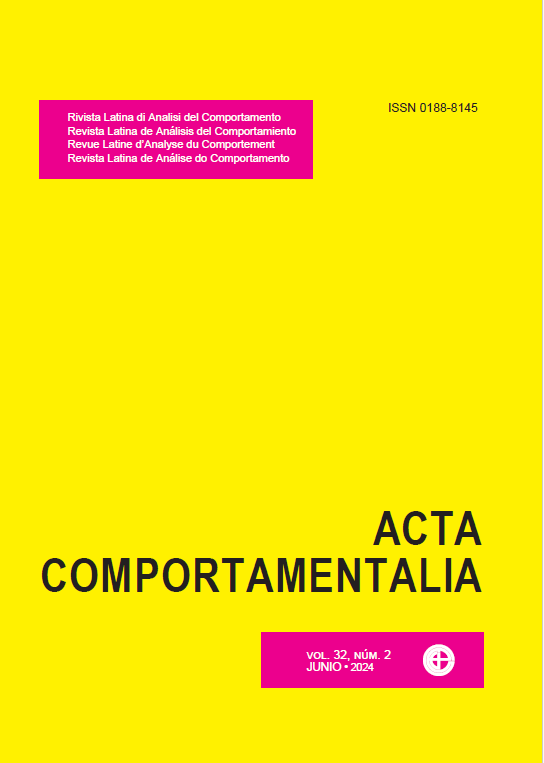Historical Fallacies in the Chomsky-Skinner Debate
DOI:
https://doi.org/10.32870/ac.v32i2.88354Keywords:
Skinner, Chomsky, Verbal Behavior, review, historical fallacies, history of BehaviorismAbstract
There are many challenges in writing history. They involve difficulties related to historical sources regarding limitations in access, conditions for verifying truthfulness, and the definition of parameters for interpretation. It is also challenging to decide the narrative strategies to be adopted and implement them correctly. Within the scope of narrative strategies, typical resources from formal and informal logic can be applied to assess the quality and appropriateness of the theses and arguments presented in historical studies. In this article, we use the literature discussing the debate between Noam Chomsky and B. F. Skinner regarding verbal behavior to illustrate some possibilities of logical errors in historical narratives and to raise the reader’s awareness about the importance of logical reasoning in writing and reading historical texts. In the literature, several significant logical problems were identified in the construction of the narrative around the debate: (i) the fallacy of presentism, manifested in narratives of a Cognitive Revolution; (ii) the fallacy of generalization, mainly related to the broad and generic uses of the concepts “behaviorism” and “cognitivism”; (iii) the fallacy of the lonely fact, found in discourses that narrate the initial reactions to the publication of Verbal Behavior; (iv) the fallacy of reductionism, present in narratives that emphasize the role of the review as the “trigger” for the decline of behaviorism; and finally (v) the fallacy of false periodization, manifested in the division of the history of psychology into theoretical movements such as behaviorism and, later, cognitivism. The analysis developed in this work demonstrated that many of the historical discourses that solidified around the Chomsky-Skinner debate were built on inadequate logical reasoning, which, in turn, had harmful consequences for the history of psychology.
Downloads
Downloads
Published
How to Cite
Issue
Section
License

<a rel="license" href="http://creativecommons.org/licenses/by-nc-sa/4.0/"><img alt="Licencia de Creative Commons" style="border-width:0" src="https://i.creativecommons.org/l/by-nc-sa/4.0/88x31.png" /></a><br />Este obra está bajo una <a rel="license" href="http://creativecommons.org/licenses/by-nc-sa/4.0/">licencia de Creative Commons Reconocimiento-NoComercial-CompartirIgual 4.0 Internacional</a>.






